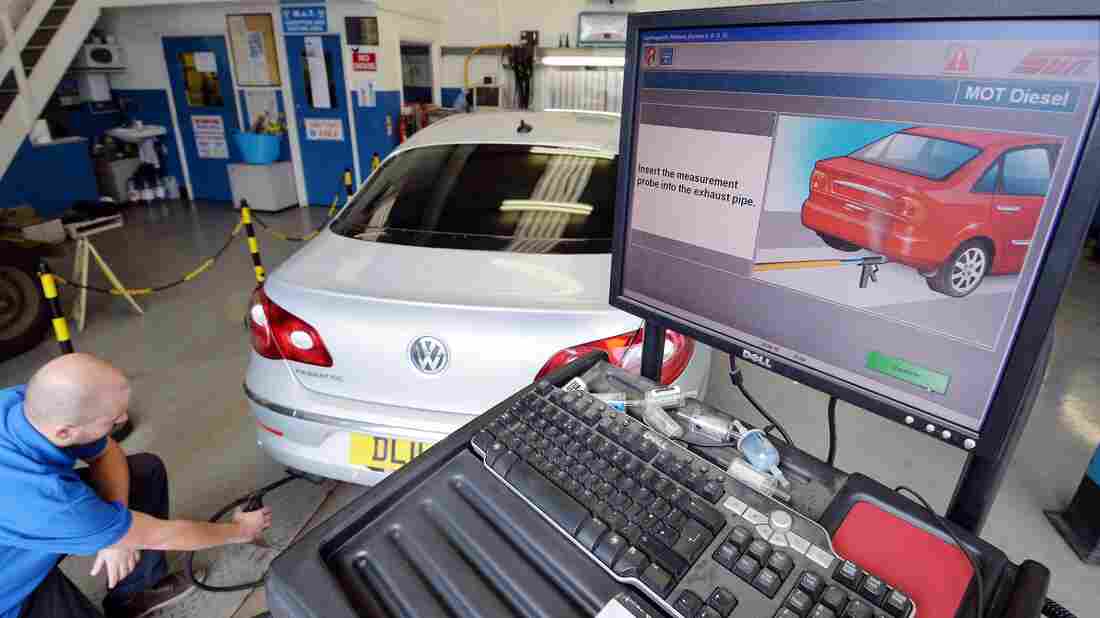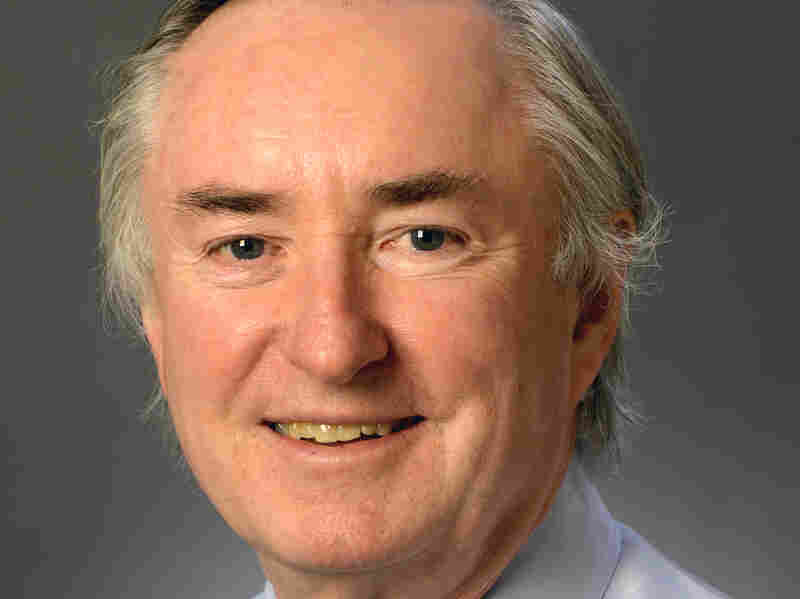As a doctor who provides medical care to Boston’s homeless population, James O’Connell and his colleagues are used to working in unusual locations. “We are basically visiting them in their homes, which are often under bridges, down back alleyways [and] on park benches,” O’Connell tells Fresh Air‘s Terry Gross. “It’s been an education for us over these years.”
O’Connell is president of the Boston Health Care for the Homeless Program, which provides health care services at over 65 sites, including adult and family soup kitchens, detoxification units and corrections facilities. He writes about his practice in a new memoir, Stories from the Shadows: Reflections of a Street Doctor.
O’Connell has been caring for Boston’s “rough sleepers,” or homeless, since 1985. He says that homeless patients suffer from the same chronic and acute illnesses as the general population — with one crucial difference. “What we see … frequently, are regular issues that have been neglected for years and years,” he says. “So we see the natural history of illness that is usually interrupted by good preventive care.”
Over the years, O’Connell has seen the ravages of untreated frostbite, AIDS and diabetes, as well as the effects of profound isolation and extreme loneliness. But he has also witnessed a courage and resourcefulness in his patients.
“These are people who are nameless and faceless when they are sitting out in the street,” he says. “But when you get to know them, they are stories of great courage, of struggles against unbelievable adversity. … I think I probably would’ve been a broken person had I lived through what they lived through.”
Interview Highlights
James O’Connell is the president of the Boston Health Care for the Homeless Program. He is also an assistant professor of medicine at Harvard Medical School. Roger Farrington/BHCHP hide caption
itoggle caption Roger Farrington/BHCHP
On suspending judgment
I remember what came across is that whatever I thought of someone, when I first met them or first walked by them, it rarely panned out once I got to know them, and the stories that emerged from these people, what they have lived through and as you learn, each one is very different from another, but each one has a remarkable story. … I hope in these stories what emerges is the real resilient spirit of people who have really, really been dealt a bad hand in life and suffer from all those social determinants of poverty.
On the result of homeless people not receiving good preventive health care
We … see the end stage of many things. We often see pneumococcal pneumonia, for example, which probably should’ve been treated on Day 1 or Day 2; by Day 7 or Day 8 it can be very, very devastating. …
As we learned the hard way … these are people who were struggling to survive outside on the streets. They’re interested in just being safe today or just getting the next meal or just getting a bed for the night. Taking care of an infection in their foot or diabetes or their hypertension is way down the list of priorities, which, of course, is really difficult for us doctors who think that should be the top of the list.
On the extreme illnesses he’s seen
We see dramatic things that I never saw in medical school or often even in the textbooks. During this past year [we] have watched a man who had been outside for a very long time who has a pretty difficult psychotic disorder who got frostbite on both feet, really severely, came into our respite facility where we cared for him and he elected to not do surgery, and we spent the past year watching his feet fall off from auto-amputation, which is what happens at the end stages of frostbite. Most of our staff, including our nurses, had never seen anything as dramatic as that.
We will also see tuberculosis, things that you would be used to seeing in a Third World country much more than an inner city of a very medically rich world. We see all of the end stages of AIDS neglected because people were not able to get to treatment. … If you are caring for a homeless population, you are really seeing the really both exotic illnesses as well as the end stages of chronic, common illnesses.
On hidden homeless communities
Even after I had been doing this job for almost 15 years thinking I knew every nook and cranny of the city of Boston, somebody pointed out to me that there were 20 people living in a tunnel under Copley Square. …They came out only at nighttime; they spent their days down in the tunnels. And I remember going down there and meeting all these people for the first time and being stunned that most of them had been there the whole 20 years that I had been out. We always think we know a lot, but we keep our minds open to finding there’s always a new place where someone can be.
On trauma homeless women face
For women to get to the streets we know that the journey is one that is very complex and almost always full of unspeakable trauma — sexual, physical and emotional trauma — and, so, by the time women are on the streets, they are really suffering, and those who become pregnant often feel despair, discouraged, feel they have no place to go, and feel very attached to having the baby safely and in a good way.
So we found that pregnancy often is not only alarming for the women, but it’s a place where they can actually take stock of their lives and try to come in, so we always try to provide as much service … gentle service as we can to anyone who is pregnant on the street, so they can deliver a good baby and hopefully hang on to that baby.
Unfortunately, many of the women, if you speak to them on the street, have had many children, all of whom they’ve lost to social services, because they were unable to stop using or they had no place to bring the baby once the baby was born. There’s an awful lot of trauma among the women on the streets about the children they have lost and mourn.





